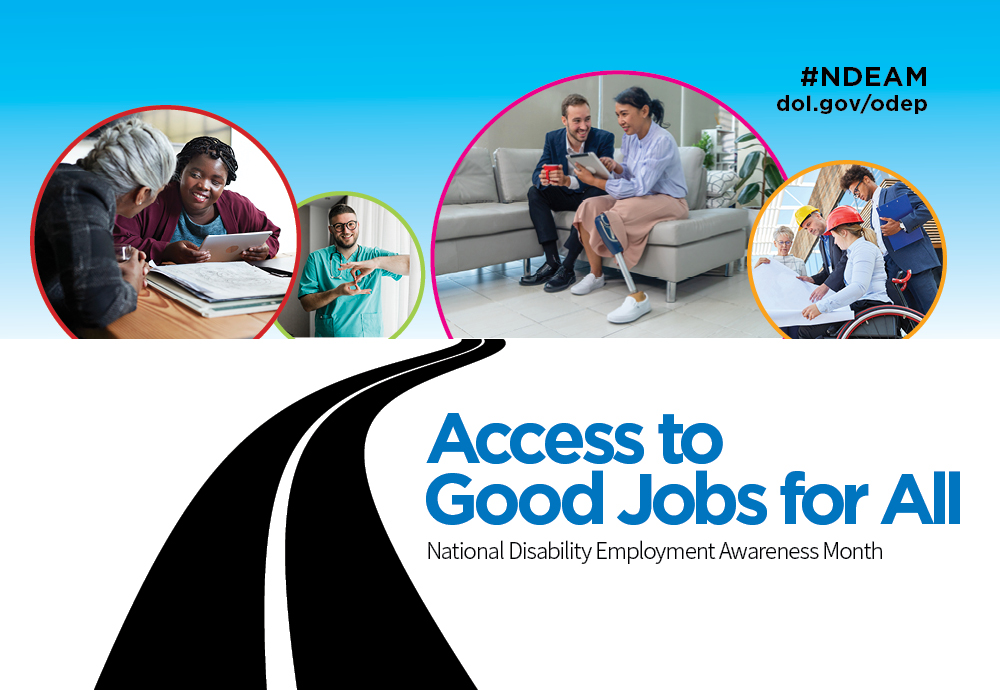
The Biden-Harris administration is strengthening our nation’s infrastructure on multiple levels. It’s modernizing our airports, roads and bridges and bringing high-speed internet and reliable power to people across the U.S. It’s also transforming lives and livelihoods by generating millions of good jobs in high-growth, in-demand sectors.
This year’s National Disability Employment Awareness Month (NDEAM) theme, “Access to Good Jobs for All,” underscores the administration’s commitment to building an opportunity infrastructure, focusing not just on the number of people with disabilities employed, but the quality of opportunities available to them.
At the department’s Office of Disability Employment Policy, this is the crux of what we do. We work to ensure that all workers—including disabled workers—can contribute to and benefit from our nation’s economic success. In this spirit, our new toolkit “Helping Workers with Disabilities Get Ahead Through Good Jobs” helps employers in high-growth sectors—such as clean energy, construction and manufacturing—recruit and hire disabled workers and foster supportive, inclusive workplaces.
We’re also helping employers who use artificial intelligence to recruit and hire new talent to do so equitably and inclusively. Through our AI & Inclusive Hiring Framework, employers can learn concrete steps to maximize its potential to include, not exclude, qualified job applicants and employees with disabilities. We developed this framework with input from federal partners, including the National Institute of Standards and Technology, and other public and private organizations.
We also increase access to good jobs for all through our work on competitive integrated employment (CIE), meaning work where employees with disabilities work alongside employees without disabilities and are paid a commensurate wage. Earlier this year, in honor of the 25th anniversary of the landmark U.S. Supreme Court case that serves as the foundation for our work in this area, we launched a CIE Transformation Hub. The Hub centralizes related policy information, practical guidance and best practices.
Of course, our efforts to ensure access to good jobs for all extend beyond today. We must ensure that our future workforce can gain the skills they need for tomorrow. One way we’re doing this is through our Equitable Transition Model grants. These grants, awarded to four states, are identifying best practices for helping youth and young adults with disabilities successfully transition from school to college or career, with a focus on youth who are multiply marginalized.
We want all youth with disabilities, from all backgrounds, to have the opportunity to explore all potential career paths. This includes options for self-employment or entrepreneurship, which recent data analysis reveals is an increasingly popular option for many people with disabilities seeking greater flexibility and freedom over their work.
Good jobs strengthen individuals, families and communities. They also strengthen our nation’s workforce and economy. That’s our number one goal at the Labor Department—and why we work to advance access to good jobs for all, every month of the year.
Taryn M. Williams is the Assistant Secretary of Labor for Disability Employment Policy.

 U.S. Department of Labor Blog
U.S. Department of Labor Blog